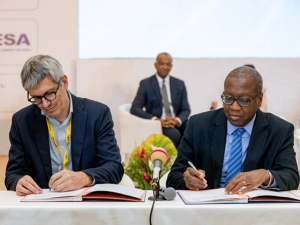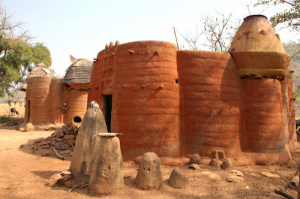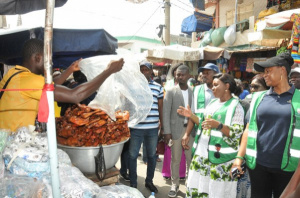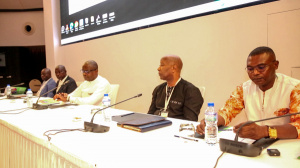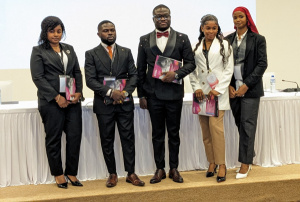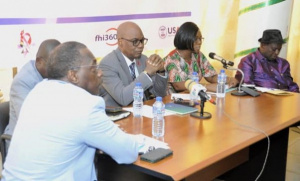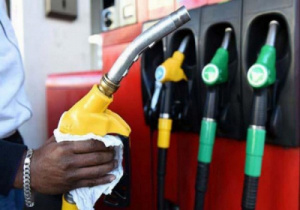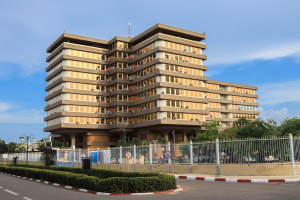Togo First
Togo Secures Solar Energy Deals with RELP and Chinese HAIER
Togo just inked two solar energy agreements with the RELP association and Chinese company HAIER. The deals were sealed on December 5, during the first West African Energy Cooperation Summit in Lomé.
The first agreement with RELP focuses on enhancing Togo's solar energy storage capacity. This will improve the Battery Energy Storage System, allowing excess energy produced during the day to be stored for nighttime use, according to Minister Robert Eklo. He emphasized that this will boost storage capacities for projects like the Blitta power plant, and future developments.
"With RELP, we'll be able to increase this storage capacity, not only on the Blida solar power plant, but on the upcoming one in Sokodé, on the upcoming one in Dapaong, on the upcoming one in Awandjélo in Kozah, and on the other solar power plants that we're going to have to deploy to reach 50% of the energy mix in 2030," explained the minister.
The agreement with HAIER will provide technological support for Togo's solar initiatives. This follows a memorandum of understanding signed last September, at the China-Africa FOCAC Forum in Beijing. "Haier is expected to contribute its technology to Togo's photovoltaic project. It's a memorandum of understanding that has yet to be given substance, but we have no doubt that given the friendly ties between China and Togo...this will translate very quickly into other photovoltaic and energy storage projects in Togo," officials stated.
Currently, Togo has over 130 MW of renewable energy.
Ayi Renaud Dossavi
Togo: Large Businesses Association Proposes Four Initiatives to Boost National Economy
The Large Businesses Association of Togo (AGET), led by President Jonas Daou, proposed four new initiatives to boost the economy. This announcement was made in Lomé on December 4, during a meeting organized by the Executive Secretariat of the State Private Sector Concertation framework. The proposals focus on simplifying and stabilizing taxes, revising public procurement procedures, investing in infrastructure, and combating fraudulent imports.
Simplifying tax mechanisms and ensuring stability in tax policies would lower administrative costs for businesses. This could reduce uncertainties that deter investors, especially foreign ones, and promote long-term investments. According to Jonas Daou, significant reforms could make Togo's business environment more competitive and appealing.
The proposed revision of public procurement procedures aims to enhance transparency and improve resource management in public contracts. This reform would strengthen oversight and introduce stricter practices.
Investing in infrastructure, particularly in transport and energy services, is expected to lower operating costs and increase the competitiveness of Togolese companies in regional and international markets.
Lastly, addressing fraudulent imports is a critical priority, as these practices often involve illegally imported or counterfeit goods that create unfair competition and harm compliant businesses. Private sector stakeholders view the AGET’s proposals as essential. They complement recent requests for tax relief in the agricultural sector.
Esaïe Edoh
Togo: Koutammakou Cultural Site to Launch New Management Plan for 2025-2027
The Koutammakou cultural site, a UNESCO World Heritage Site since 2004, will receive a new management plan for 2025-2027. This plan was approved on December 4, 2024, by the National Commission for Cultural Heritage (CNPC) in Nadoba, located 420 km north of Lomé.
The plan is based on recommendations from international organizations, including the World Heritage Centre (WHC) and ICOMOS, which emphasize involving local communities in preservation efforts. The Koutammakou site faces threats from climate change, urban pressure, and modern construction methods that compromise its traditional architecture.
The new management plan is part of a broader project titled "Actualisation du plan de gestion et de conservation du site Koutammakou, le pays des Batammariba."
The government announced a CFA3 billion FCFA project in February 2023 to develop the site further.
Esaïe Edoh
Togo Launches Price and Quality Control Operations in Markets
Minister of Trade and Local Consumption Rose Kayi Mivedor visited the Adawlato and Adidogomé markets in Greater Lomé last week.
She was with various trade inspectors to ensure that sellers are complying with regulations regarding product prices, quality, and the protection of perishable goods. This operation is part of a broader effort to monitor markets and control prices while ensuring the quality of essential food products.
The initiative seeks to boost consumer confidence and promote local products.
"We want to guarantee product safety and support local consumption," said Minister Mivedor. The operation also aims to prevent traders from selling expired goods, especially during this festive season when retailers often rush to clear their stocks. The minister warned that sanctions would be enforced for violating standards, and inspections would continue nationwide.
West African Cooperatives Gathered in Lomé to Assess Their Digitalization Level
The Togolese capital, Lomé, is hosting a meeting focused on the DigiCoop WA Project, launched two years ago. Participants–West African finance cooperatives–are reviewing their digitalization efforts since the project kicked off. The meeting started on December 2.
Backed by Switzerland, DigiCoop WA spans several countries including Togo, Benin, Burkina Faso, Mali, and Senegal. It aims to enhance living conditions for populations—especially women, small producers, and youth—by improving access to digital financial services through cooperatives and mutuelles. Over the past two years, more than 240,000 individuals have begun using these digital services.
"While progress has been made thanks to the efforts of public authorities and partners, it must be recognized that much remains to be done", said the Chairman of the Board of Directors of Togo's Faîtière des Unités Coopératives d'Epargne et de Crédit (FUCEC). Therefore, the Lomé meeting aims to establish new commitments to strengthen ongoing efforts.
Digital financial service usage in the region has surged from 26.2% in 2012 to 67.2% in 2021, largely driven by e-wallet adoption—3.5 million users in Togo as of 2024. However, there are still issues regarding service pricing, interoperability, telecommunications reliability, and data security.
Logimat Launches Online Platform for Construction and Logistics in Togo
In Togo, a new online service platform called "Logimat" has been launched to improve practices in the construction and logistics sectors. The platform officially began operations on November 30 in Lomé. Logimat allows companies and individuals to buy hardware online and rent heavy equipment for construction projects.
Geolocation and AI
Logimat uses advanced geolocation and AI technologies to enhance delivery management and route planning. These tools enable users to track their equipment or goods in real-time, ensuring faster and more reliable deliveries. The AI also recommends products and services based on individual user needs, improving the overall customer experience.
“By creating Logimat, we aim to make life easier for users while modernizing practices in the key construction and logistics sectors,” said Logimat CEO Kadjaka Dissima-Winiga. “With the app, we aim to support the digitalization of these sectors and contribute to local economic growth by facilitating exchanges and creating new opportunities for market players.”
This initiative joins existing digital solutions in the construction sector, such as the Edolé Africa app.
Togo Achieves Significant Progress in HIV/AIDS Fight
Togo had 105,000 people living with HIV/AIDS in 2023, with a prevalence rate of 1.6% among those aged 15 to 49. Of the infected, 90% have been tested for the virus, 84% are receiving antiretroviral treatment, and 76% have successfully suppressed their viral load.
The figures were disclosed on November 29, 2024, during a press conference held by the National Council for the Fight Against AIDS and Sexually Transmitted Infections (CNLST/IST). The meeting coincided with World AIDS Day 2024, and was held under the theme “Take the right path: My health, my right !”. It highlighted Togo's progress and ongoing challenges in the fight against HIV/AIDS, coinciding with.
Additionally, Togo's Prevention of Mother-to-Child Transmission (PMTCT) program has achieved an 85% coverage rate. The number of AIDS-related deaths has decreased from 6,600 in 2010 to 2,300 in 2023, down by 65.15%, or -8% per year on average.
Ayi Renaud Dossavi
Togo to Halve Customs Duties on Industrial Diesel in 2025
In Togo, customs duties on industrial diesel will be halved next year. The change was outlined in the 2025 draft finance law, which Lomé approved last week.
The amendment will take effect on January 1. It will apply to diesel that fuels the machinery and non-road mobile equipment used by extractive and manufacturing companies. The cut aims to boost local industry, including projects like the Plateforme Industrielle de Adétikopé.
For traceability purposes, the diesel will be blended with colorants and tracers. The Ministry of Trade will oversee controls. Lomé plans to publish a list of eligible companies and their authorized annual diesel volumes through an interministerial decree, based on proposals from the Togolese Revenue Office (OTR). Companies must meet strict criteria, including being registered in Togo and having dedicated storage tanks for this type of diesel.
The government has warned that violations of this measure will lead to penalties as outlined in the Customs Code and other applicable laws. In Lomé, officials believe this initiative will enhance the competitiveness of Togolese companies and stimulate economic activity, although the potential cost of the measure has not been disclosed.
Due to shifts at the international level, diesel prices have fluctuated significantly in Togo in recent years. For instance, in March 2022, the price per liter increased from 520 to CFA605, reaching a peak of CFA850 by July 2022. In January 2023, the government adjusted the price to CFA775 to mitigate impacts on consumers, especially industries. The government currently subsidizes diesel at a rate of CFA239 per liter.
Fiacre E. Kakpo
Togo Plans Excise Duty Cuts for Local SMEs in 2025
The Togolese government plans to cut excise duty rates on certain local products in 2025. The move was outlined in the Finance Bill approved last week by the Council of Ministers. The cuts should boost local production and support small and medium-sized enterprises (SMEs) by providing more favorable tax conditions.
Natural products produced by local SMEs and certified by authorized State bodies will receive reduced excise duties from January 1 to December 31, 2025. A regulatory act will define the specifics of these tax breaks.
This decision diverges from Article 243 of the French General Tax Code, which sets excise duties on various products. For instance, non-alcoholic beverages like energy drinks are taxed at 10%, while other non-alcoholic drinks are taxed at 5%. Beer and alcoholic beverages face taxes of 20% and 60%, respectively, while tobacco is taxed at 100%.
Necessities such as wheat flour and edible oils already enjoy reduced rates of 1%, while coffee and tea are taxed at 10%. Other products like high-powered vehicles and plastic bags incur a 5% duty, and luxury items like cosmetics and precious stones are taxed at 15%. In 2023, excise duties generated CFA54 billion for the state, with expectations to rise to CFA 66 billion next year.
By reducing duties for local SMEs—specific rates are yet to be announced—the government hopes to enhance their competitiveness, encourage local processing, and stimulate the national economy. Excise duties are a crucial revenue source for the state, and the government aims to use them to regulate consumption and promote small local industries. This reduction supports a broader initiative to assist small and medium-sized businesses, which has been a focus of various efforts in recent years. A key tool for supporting these companies, the MSME charter, is expected to be implemented soon. This charter outlines ambitious measures to address challenges such as access to financing.
Fiacre E. Kakpo
Togo Counts on Tax Income, Loans, and Grands to Primarily Fund 2025 Budget
The Togolese government has projected a budget of CFA2,394 billion for the fiscal year 2025. This budget will cover economic and social development projects and primarily leverage tax revenues and loans. The Assembly has yet to validate the budget.
1,200 billion in tax revenues
Lomé expects CFA1,200 in tax revenues next year–about 50.2% of the total budget. The government forecasts non-tax revenues at CFA74.3 billion (3.1%). Program and project grants are expected at CFA12.9 billion (0.5%) and CFA188.3 billion (7.9%), respectively.
Substantial Debt Accumulation
Borrowing will also play a significant role, with cash resources estimated at CFA910.8 billion, around 38.1% of the total budget. This includes CFA340.7 billion from public securities (14.2%) and nearly CFA150 billion from project borrowings (6.3%). There are also CFA420.5 billion from other borrowings (17.6%), although details on these are not yet available.
Assets of Designated Treasury Accounts
Revenue from special Treasury accounts, mainly from earmarked accounts, is expected to be CFA7.8 billion, about 0.3% of the total budget.
The proposed budget for 2025 is a 9.9% increase from the CFA2,179 billion allocated in the 2024 Finance Act, with nearly half of the spending focused on social programs.
Ayi Renaud Dossavi

